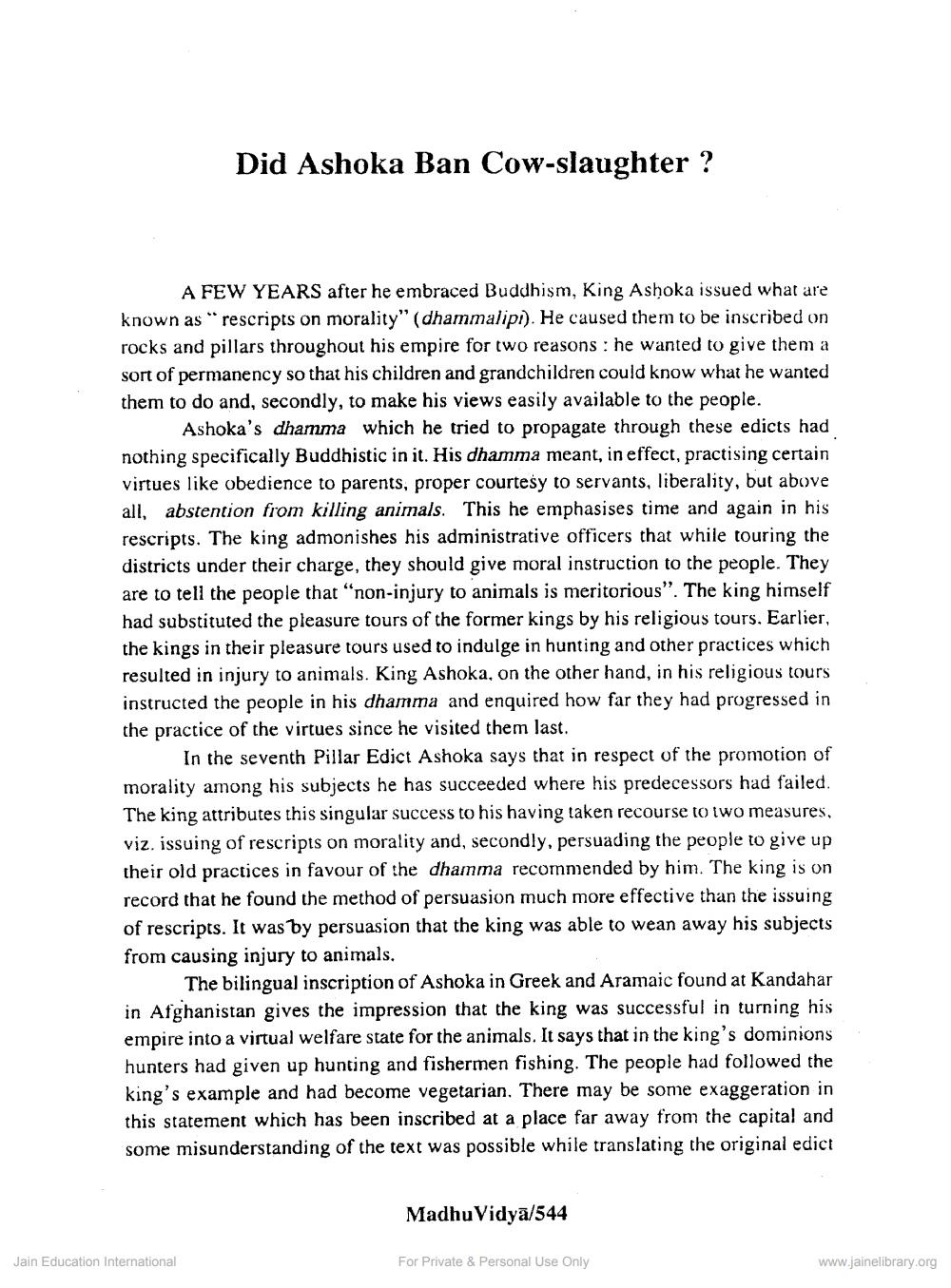________________
Did Ashoka Ban Cow-slaughter ?
A FEW YEARS after he embraced Buddhism, King Ashoka issued what are known as “rescripts on morality" (dhammalipi). He caused them to be inscribed on rocks and pillars throughout his empire for two reasons : he wanted to give them a sort of permanency so that his children and grandchildren could know what he wanted them to do and, secondly, to make his views easily available to the people.
Ashoka's dhamma which he tried to propagate through these edicts had nothing specifically Buddhistic in it. His dhamma meant, in effect, practising certain virtues like obedience to parents, proper courtesy to servants, liberality, but above all, abstention from killing animals. This he emphasises time and again in his rescripts. The king admonishes his administrative officers that while touring the districts under their charge, they should give moral instruction to the people. They are to tell the people that "non-injury to animals is meritorious". The king himself had substituted the pleasure tours of the former kings by his religious tours. Earlier, the kings in their pleasure tours used to indulge in hunting and other practices which resulted in injury to animals. King Ashoka, on the other hand, in his religious tours instructed the people in his dhamma and enquired how far they had progressed in the practice of the virtues since he visited them last.
In the seventh Pillar Edict Ashoka says that in respect of the promotion of morality among his subjects he has succeeded where his predecessors had failed. The king attributes this singular success to his having taken recourse to two measures, viz. issuing of rescripts on morality and, secondly, persuading the people to give up their old practices in favour of the dhamma recommended by him. The king is on record that he found the method of persuasion much more effective than the issuing of rescripts. It was by persuasion that the king was able to wean away his subjects from causing injury to animals.
The bilingual inscription of Ashoka in Greek and Aramaic found at Kandahar in Afghanistan gives the impression that the king was successful in turning his empire into a virtual welfare state for the animals. It says that in the king's dominions hunters had given up hunting and fishermen fishing. The people had followed the king's example and had become vegetarian. There may be some exaggeration in this statement which has been inscribed at a place far away from the capital and some misunderstanding of the text was possible while translating the original edict
Madhu Vidyā/544
Jain Education International
For Private & Personal Use Only
www.jainelibrary.org




